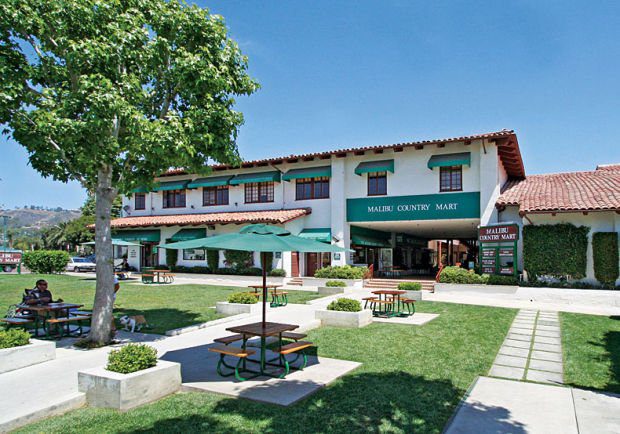Reviving the battle over commercial development in Malibu, a group headed by film director and activist Rob Reiner and his wife Michele submitted a draft ballot initiative to the city proposing stringent citywide regulations on chain stores. They are also seeking a law requiring voter approval of new shopping centers more than 20,000 square feet in size.
The Reiners and their group, Save Malibu, want the initiative put on the November ballot this year. Malibu residents Carol Moss and Dru Ann Jacobson also attached their name to the proposal.
“We filed the ‘Your Malibu, Your Decision Act’ because that [small-town] character stands to be destroyed by massive new commercial developments – developments that we think the voters of Malibu should have the power to approve or reject,” Michele Reiner said in a statement to The Malibu Times.
The “Your Malibu, Your Decision Act” contains two components. Under the first, all major shopping center development and commercial or mixed use construction over 20,000 square feet would require a citywide vote. The second component would place a 30 percent limit on the number of chain stores permitted to operate in Malibu shopping centers.
Requests for comment to several Civic Center landholders and developments were not returned as The Malibu Times went to press on Tuesday evening.
A team of attorneys in Northern California and political campaign strategists in Los Angeles spent three months drafting the initiative for the Reiners, who are no strangers to political activism. For this latest effort, they enlisted strategist Felix Schein of the Griffin-Schein political firm.
Schein worked with the Reiners when they sponsored the gay couple who challenged Proposition 8 in court, which was overturned by the Supreme Court last year. The Reiners were also pivotal in saving and preserving Ahmanson Ranch by advocating for the passage of Prop 10 in 2003.
Chain store restrictions
The draft initiative defines a chain or “formula retail” store as having 10 or more global locations. In order to open a new chain in Malibu, the business would have to obtain a conditional use permit (CUP) from the Planning Commission and occupy no more than 2,500 square feet. Current chain stores would be grandfathered in if the initiative passes.
“Already-existing chain stores would not be required to obtain a conditional use permit. However, if they wanted to expand, for example, or move to a new location, then the new rule would apply to them,” said James Harrison, an attorney who represents the Reiners.
Additionally, no more than 30 percent of overall square footage and leasable spaces of a shopping center could be occupied by a chain. Grocery stores, banks, real estate offices, gas stations, movie theaters, post offices, drug stores, medical offices and low-cost overnight hotels and motels would be exempt from the law.
The chain store restrictions bear a striking resemblance to an ordinance that was considered by the City Council last year that would have only applied to the Civic Center. Despite pressure from the grassroots group Preserve Malibu and many slow-growth proponents, the council eventually ruled against the ordinance and instead opted to begin drafting a Civic Center Specific Plan and Design Guidelines. Later this month, city officials will consider implementing a temporary 45% cap on chains in the Civic Center for one year until the specific plan and design guidelines are drafted by a consultant.
Fate of new shopping centers would be up to voters
The other “Your Malibu, Your Decision Act” initiative component—putting development decisions in the hands of voters—was not an idea considered at the council level last year. Any proposed commercial/shopping center measuring 20,000 square feet or more that does not yet have building permits would be put to a citywide vote. If the initiative is passed and enacted this year, the law could affect some projects already in the pipeline such as Whole Foods in the Park and the La Paz project, according to Harrison.
“If they don’t have their building permits, then the new law would apply to them,” he said.
The City of Del Mar in San Diego County passed a similar voter-empowering law in the 1980s.
“Right now, decisions about the construction of massive new developments can be made without voter approval…We hope developers will embrace this idea,” Michele Reiner said.
City Clerk Lisa Pope said the Malibu City Attorney Christi Hogin’s office is looking over the draft initiative and must prepare a ballot title and summary before Reiner’s camp can begin gathering signatures to have the initiative officially placed on the November ballot. Pope said that in order for a special election to be held in November, the petitioners would need to gather 15 percent of signatures from local voters. She said it was too early to know if the initiative would require 50-plus-1 percent approval or two-thirds voter approval.


